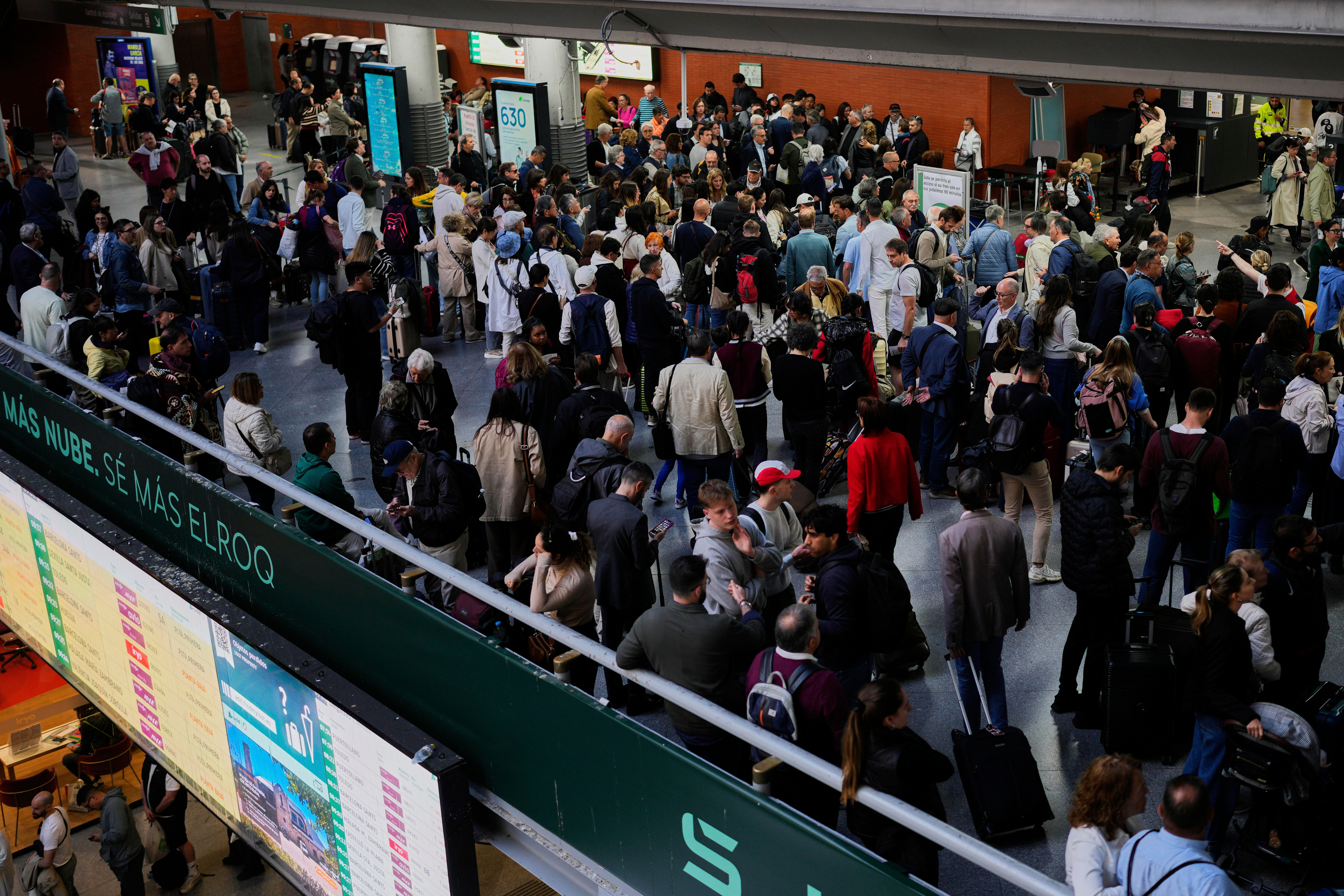The chair of Spain’s electricity grid operator Redeia has hit out at “misinformation” after mass blackouts hit the country and neighbouring Portugal.
Redeia has been under scrutiny since the blackout on 28 April, which left vast swathes of Spain and Portugal without power.
Beatriz Corredor has consistently deflected blame, pinning the responsibility on power-generating companies.
Ms Corredor survived an impromptu shareholder vote on her removal, despite facing intense criticism over a massive power outage that plunged most of Spain and Portugal into darkness in April.
The vote took place at a tense shareholder meeting on Monday, where Ms Corredor also pledged record investment.
The CEO ruled out setting aside provisions to cover any costs related to the blackout, saying Redeia always followed existing rules and procedures. But Corredor acknowledged risks to its reputation.

"The numerous episodes of misinformation ... have intensified pressure and public scrutiny over Redeia," she added.
Corredor pledged to defend the company and its workforce "in the face of unfounded, and sometimes very serious, accusations seeking to undermine our reputation".
Energy firms, analysts and politicians have called for more investment in Spain's power grids.
"The company's next strategic plan will involve the execution of an unprecedented volume of investments," Corredor said, without giving details.
Investments have been increasing in recent years and will surpass 1.4 billion euros ($1.6 billion) in 2025, Garcia Merino said.
A government report into the incident highlighted Redeia’s failure to calculate the correct energy mix as a contributing factor to the grid’s inability to cope with a voltage surge that ultimately triggered the outage.
Large energy companies in Spain have also voiced criticism regarding the management of the power link with France.

Alongside Chief Executive Roberto Garcia Merino, Ms Corredor defended Redeia’s actions both before and during the blackout, citing its planning of power sources for voltage control and its management of the interconnector with France.
Ultimately, Ms Corredor secured the backing of shareholders, who voted to keep her in position following the unplanned ballot initiated by one shareholder.
It took almost 23 hours for Spain’s electrical grid to declare that systems were back up and running as normal, with the outage affecting traffic lights, street lamps, payment terminals, and screens.
Domestic and international transport was badly hit with metro systems grinding to a halt and communication networks faltering, leaving many wondering what had gone wrong.
Hundreds of flights were canceled at airports across Spain and Portugal.
Fans camp out in Wimbledon ticket queue over ‘mini-festival’ weekend
Nations are meeting to drum up trillions to combat poverty — but the US isn't going
Tips for families heading abroad for summer holidays to save money
Ukraine war live: Kyiv claims advances in Sumy region ahead of counteroffensive
First case of highly infectious viral disease detected on French cattle farm
What is a heat dome? Weather system explained as Europe faces sweltering temperatures







